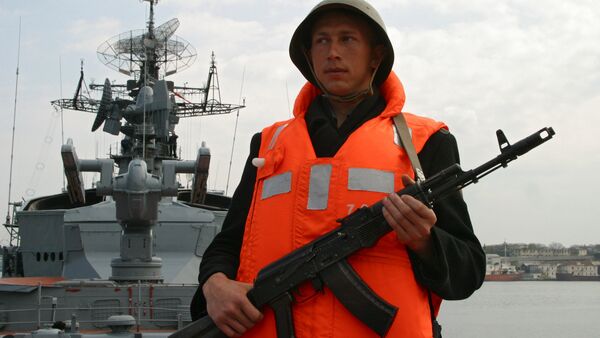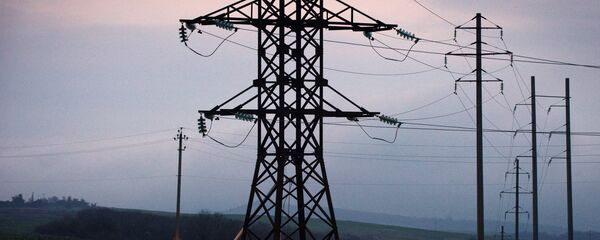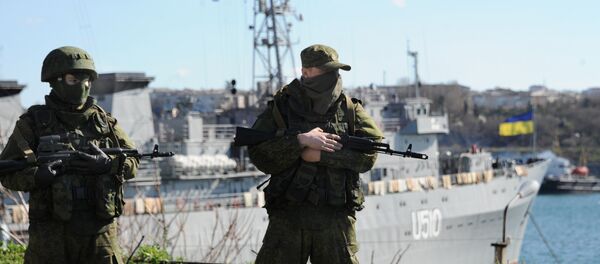In an interview for Ukrainian news website Liga.net on Saturday, Lenur Islyamov, one of the troika of Ukraine-based Tatar politicians responsible for organizing the so-called food and electricity 'blockades' of Crimea, announced that the 'food blockade' has come to an end, in connection with recent Ukrainian legislation banning trade with the peninsula.
"We have removed all the checkpoints charged with the inspection of vehicles at 12 pm; the blockade is being lifted; it is moving into the legislative sphere…The guys will stay there [in Ukraine's Kherson Region, bordering Crimea], but just as observers, running checkpoints, similar to the checkpoints of an assault group or police checkpoints," the Tatar nationalist organizer said.
Effectively, Kiev's measures against Crimea specifically and against Russia more broadly have transferred responsibility for the so-called 'food blockade' of the peninsula (which affected Ukrainian farmers much harder than it had Crimeans) from the activists to the government.
In his interview, Islyamov confirmed that his activists, who include Tatar nationalists and paramilitaries from Ukraine's notorious Right Sector militant group, are on track with their plans for a 'naval blockade' of Crimea.
"Yes, we are preparing for it, but we still lack the decision of our higher organs. And so we wait," Islyamov noted.
At the same time, Liga.net explained, the organizer did not clarify the expected timeframe for the beginning of the 'blockade', suggesting only that its format was still being discussed.
As for the formation of a special volunteer battalion, whose goals Islyamov had earlier said would be to "defend the Crimean border from inside Crimea itself," the activist noted that it will be formed within two months. "Preparation is ongoing on a volunteer basis. We are waiting to be assigned a number as an official military unit. When we get a number, we can officially form it. People are continuing to arrive."
Late last month, commenting on Islyamov's statements about a blockade of the peninsula, Ivan Konovalov, the director of the Moscow-based Center for the Study of Strategic Trends, emphasized that in contrast to the food and electricity blockades, which were carried out from the safety of Ukrainian territory, any attempt at blockading Crimea from Russian territorial waters would put the extremists in a world of trouble.
"The Kerch Strait [connecting Crimea to Russia's Krasnodar Region to the east] is Russian territory," the analyst recalled. "The Russian FSB Border Service has the resources to quickly respond to any action or provocation…On their territory, they can do whatever they want, but on Russian territory, any provocateurs will be quickly rebuffed, and the reaction will be extremely harsh."
Ultimately, Konovalov suggested, "if an action is carried out [in the Kerch Strait] bearing the signs of a terrorist attack, it will affect Russia's relations with Ukraine…If some deranged lunatics want to provoke a conflict between Russia and Ukraine, it will be in Kiev's interest not to allow this to happen. If Islyamov's declarations should scare anyone, it is Kiev."




